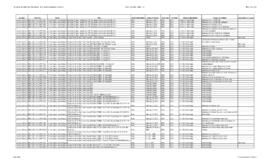- RBSC-ARC-1841
- Fonds
- 2006-2009
The fonds reflects the process of creating the documentary film Bevel Up: Drugs, Users and Outreach Nursing (entitled “Taking Health to the Streets” during production). Bevel Up is a co-production between the Street Nurse Program of the British Columbia Centre for Disease Control (BCCDC) and the National Film Board of Canada (NFB), with financial support from Health Canada and the BC Nurses’ Union (BCNU), and was created in collaboration with Canada Wild Productions Ltd. (Nettie Wild and Betsy Carson).
Filmed over six months in 2006, and over two years in production, Bevel Up was created in collaboration with the street nurses and a crew which included director Nettie Wild, cinematographer Kirk Tougas, producer Betsy Carson, and editor Mike Brockington.
Bevel Up is a 45-minute film, shot in the style of cinema verite (showing people in everyday situations), at the heart of a four-and-a-half-hour interactive DVD that features separate menus on a range of professional, ethical, and legal issues related to the delivery of health care to drug users. There is also an accompanying teaching guide.
The documentary was the brainchild of Caroline Brunt, a street nurse with the B.C. Centre for Disease Control and is designed to help student nurses and seasoned professionals working with drug using populations. Bevel Up: Drugs, Users and Outreach Nursing follows a team of street nurses as they reach out to youth, sex workers and street entrenched men and women in the alleys and hotels of Vancouver’s Downtown East Side. Most importantly, the nurses reflect on attitudes that can make or break the relationship needed to successfully provide practical and nonjudgmental health care.
Materials include master tapes of raw footage, edited video and audio tapes, final copies of the interactive DVD and teaching manual, CDs containing the French translation of the teaching manual, a promotion trailer, a publicity clip reel, printed annotated transcripts, press kits, publicity posters, magazine reviews, a distribution chart and a publicity report.
无标题的
